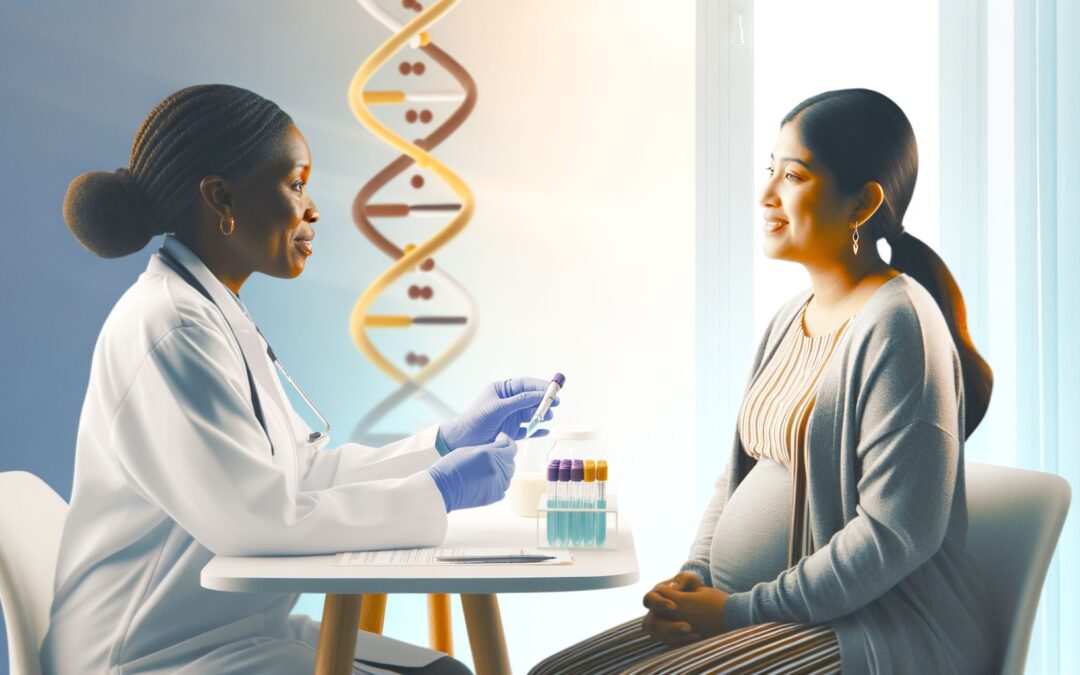Welcome to the exciting journey of parenthood! As you prepare to welcome your little one into the world, there may be some questions about the baby’s biological father. If you are unsure about the paternity of your child, you may be considering a non-invasive prenatal paternity test at home. This blog post will provide you with all the information you need to know about this type of test.
What is a Non-Invasive Prenatal Paternity Test?
A non-invasive prenatal paternity test, also known as NIPP, is a type of DNA test that can determine the biological father of a baby before it is born. Unlike traditional prenatal paternity tests that involve invasive procedures such as amniocentesis or chorionic villus sampling, NIPP is a completely safe and non-invasive option.
How Does it Work?
NIPP uses a small blood sample from the mother and a saliva sample from the potential father to analyze the baby’s DNA. This test can be performed as early as 9 weeks into the pregnancy, making it a great option for those who want to get answers sooner rather than later. The accuracy rate of NIPP is 99.9%, making it a highly reliable method of determining paternity.
Why Choose a Non-Invasive Prenatal Paternity Test?
There are several reasons why expecting parents may choose NIPP over other forms of prenatal paternity testing. Here are a few:
- Non-invasive: As mentioned earlier, NIPP does not involve any invasive procedures, making it a safer and more comfortable option for both the mother and the baby.
- Early testing: NIPP can be performed as early as 9 weeks into the pregnancy, providing you with answers sooner.
- High accuracy: NIPP has a 99.9% accuracy rate, making it a highly reliable method of determining paternity.
- Convenience: With NIPP, you can collect the samples from the comfort of your own home, making it a convenient option for busy expecting parents.
Frequently Asked Questions
- Can NIPP be used for legal purposes? Yes, NIPP is accepted as evidence in court, but it must be performed by an accredited laboratory and follow strict chain of custody procedures.
- Is NIPP safe for the baby? Yes, NIPP is completely safe for both the mother and the baby as it does not involve any invasive procedures.
- How accurate is NIPP? NIPP has a 99.9% accuracy rate, making it a highly reliable method of determining paternity.
- Is NIPP covered by insurance? As NIPP is an elective procedure, it is not typically covered by insurance. However, at Pro DNA Lab, we offer affordable pricing options and accept HSA/FSA payments.
In Summary
A non-invasive prenatal paternity test at home is a safe, convenient, and highly accurate way to determine the biological father of a baby before it is born. With an accuracy rate of 99.9%, NIPP provides peace of mind for expecting parents and can be used for legal purposes if needed.
This blog post is for informational purposes only and does not replace professional medical or legal advice.
Ready to Get Answers?
If you’re considering a non-invasive prenatal or legal paternity test, Pro DNA Lab is here to help. Our experienced team of professionals will guide you through the process and provide you with accurate and reliable results.
- 📞 Call us at (866) 644-4362
- 🌐 Visit: https://prodnalab.com
- 📧 Email: info@prodnalab.com
Author: Marvin Thomas
Founder of Pro DNA Lab
Marvin leads Pro DNA Lab with a mission to make DNA testing simple, private, and accessible for families who need clarity and peace of mind.


